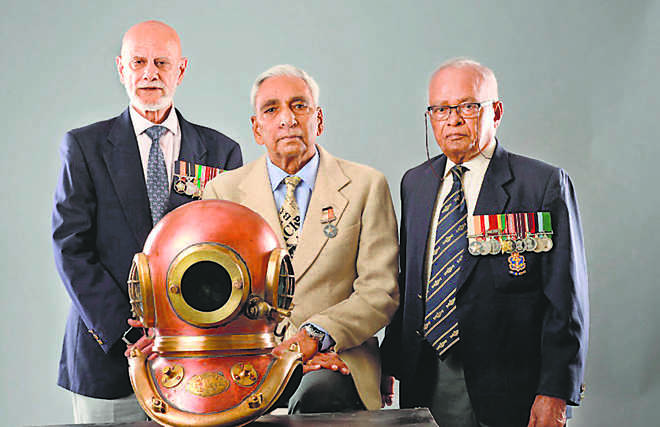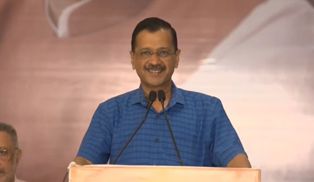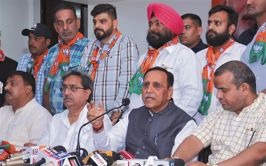
War Heroes (L to R) Cdr Vijai Kapil, Chiman Singh and Capt MNR Samant
Subhash Rajta
The 1971 War with Pakistan was different on a couple of counts from the previous wars India had fought. One, it was the first war India had planned and prepared for, and had carried out covert operations behind enemy lines before the official declaration of the war. Two, the Indian Navy bared its fangs for the first time and stung the enemy so hard that it was virtually a sitting duck by the time the then Prime Minister Indira Gandhi gave a call to arms on December 3, 1971.
That India and Pakistan would fight another war had become clear when Pakistan imposed martial law in East Pakistan (now Bangladesh) on March 26, 1971, and its armed forces began a bone-chilling genocide of its own citizens to crush the demand for Bangladesh. The ruthless killing and plunder triggered a massive exodus into India — around 10 million refugees are said to have crossed over during the crackdown, threatening to change the demography of Assam and Tripura.
Apart from wanting to check the massive inflow of refugees and extend a helping hand to the besieged East Pakistan, India's decision to walk into the confrontation was influenced by one more crucial factor. Pakistan's notorious Inter-Services Intelligence (ISI) had been using East Pakistan to infiltrate the Naga and Mizo insurgent groups into India since the 1950s. And the crisis offered a chance to get rid of the scourge once and for all. So, not too long after Pakistan's clampdown, India's Operation Jackpot was afoot — its objective was to offer logistical support and training to Mukti Bahini, an armed militia resisting the Pakistan army.
For Indian Navy, too, this was an opportunity to earn its stripes. In the earlier wars against Pakistan and China, the Navy had not seen any action. It was considered a lesser force compared to the Army and the Air Force, evident in the meagre percentage of defence budget allocated to it and the number of men and officers it had. Admiral SM Nanda, who had been seething over the prejudiced attitude towards the Navy, felt it was the moment to establish Navy's credentials as a destructive force. Until then, the naval force was merely seen as a defensive apparatus, and the Admiral was desperate to change the not-so-flattering perspective.
To achieve this objective, the Navy chalked out a plan to train around 600 East Pakistan youths into naval commandos to sink Pakistan’s ships, submarines and frigates, make the ports dysfunctional and strangulate sea supply lanes from West Pakistan to East Pakistan ports.
Operation X, co-authored by Captain MNR Samant, one of the heroes of the war, and Sandeep Unnithan, is a remarkable account of the training and exploits of this tiny naval force that brought the Pakistan army down on its knees. Coming from the horse’s mouth — Samant oversaw the naval part of Operation Jackpot — the book is brilliant in its attention to detail and the portrayal of main characters. The racy narrative, loaded with ‘classified’ information, gives it a touch of a thriller.
Despite India's covert backing, Mukti Bahini had been trounced by the Pakistan army on land and was forced to resort to guerrilla warfare. On August 14, the naval commandos struck at Chittagong and other places, sinking several merchant ships and hitting warships and gunboats. The hugely successful naval strikes boosted the morale of the beleaguered Mukti Bahini, and the fight for the liberation of East Pakistan was well and truly on. The subsequent attacks by the naval commandos not only impaired the transport of men and material across the strife-torn province using waterways but also scared away the foreign vessels bringing ammunition from Pakistan.
And when the full-fledged war broke out, the Indian Navy lit up a bonfire in Karachi and Dacca, and cut off all supply lines from Pakistan. No wonder, the Pakistan army surrendered within a fortnight and East Pakistan was liberated.



























